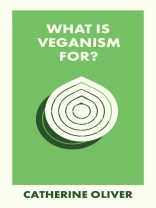Across the world, an increasing number of people are turning to veganism, changing not just their diets, but completely removing animal products from their lives. For some, this is prompted by concerns over animal ethics; for others, it’s a response to the part played by animal agriculture in the climate crisis or an attempt to improve their own health.
Catherine Oliver shows why the veganism movement has become a powerful social, political and environmental force, taking an honest look at how we live and eat. She discusses the health and environmental benefits of veganism, explores the practical and social impacts of the shift to eating plants, and explains why veganism is not just a diet, but a way of life.
Jadual kandungan
1. Introduction
2. Animals
3. Environment
4. Health
5. Culture
6. Techno-veganism
7. Justice
8. Conclusion: Vegan Futures
Mengenai Pengarang
Catherine Oliver is a lecturer in the Sociology of Climate Change at Lancaster University. Previously she was a research associate in the Department of Geography at the University of Cambridge. A geographer interested in research beyond the human, she works on historical and contemporary veganism, the ethics and politics of interspecies friendship through human-chicken relationships, and multispecies ethnographic research, most recently with seabirds. She has been featured on BBC Radio 3’s Free Thinking, written for Tribune, and had her work cited in The Guardian and The Independent. She is the author of Veganism, Archives, and Animals: Geographies of a Multispecies World (Routledge, 2022) which won the Runners’ Up Prize in the Social and Cultural Geography Research Group of the Royal Geographical Society’s Book Prize in 2022 and was a finalist for the prestigious AHRC/BBC’s New Generation Thinkers.












